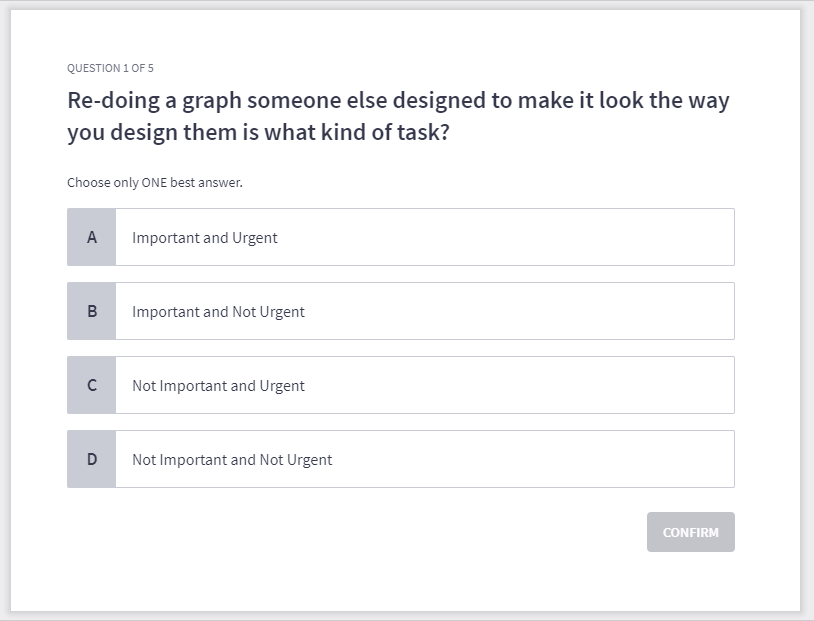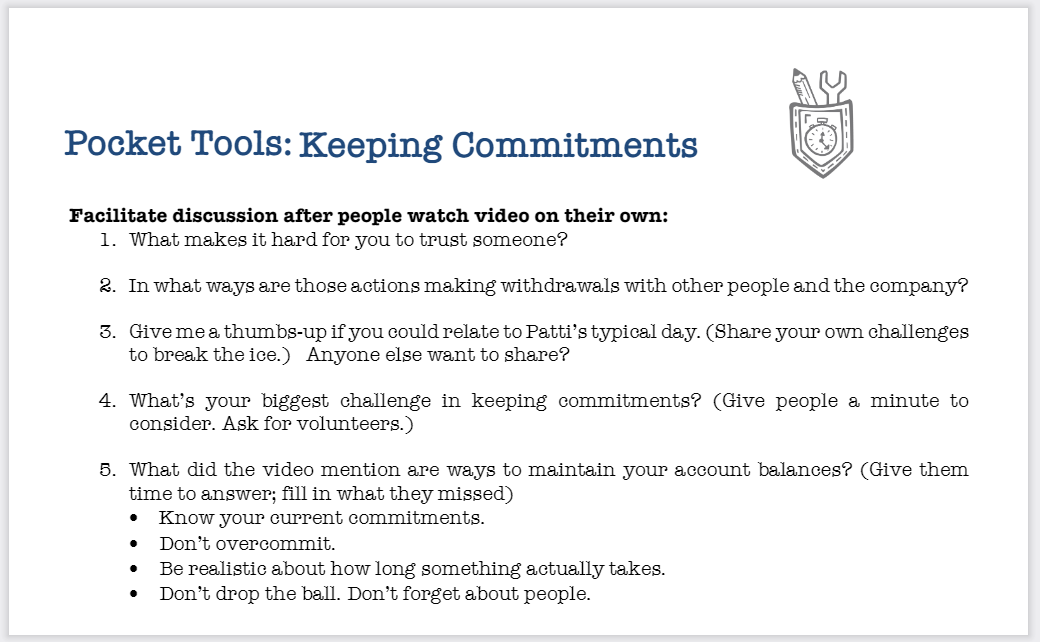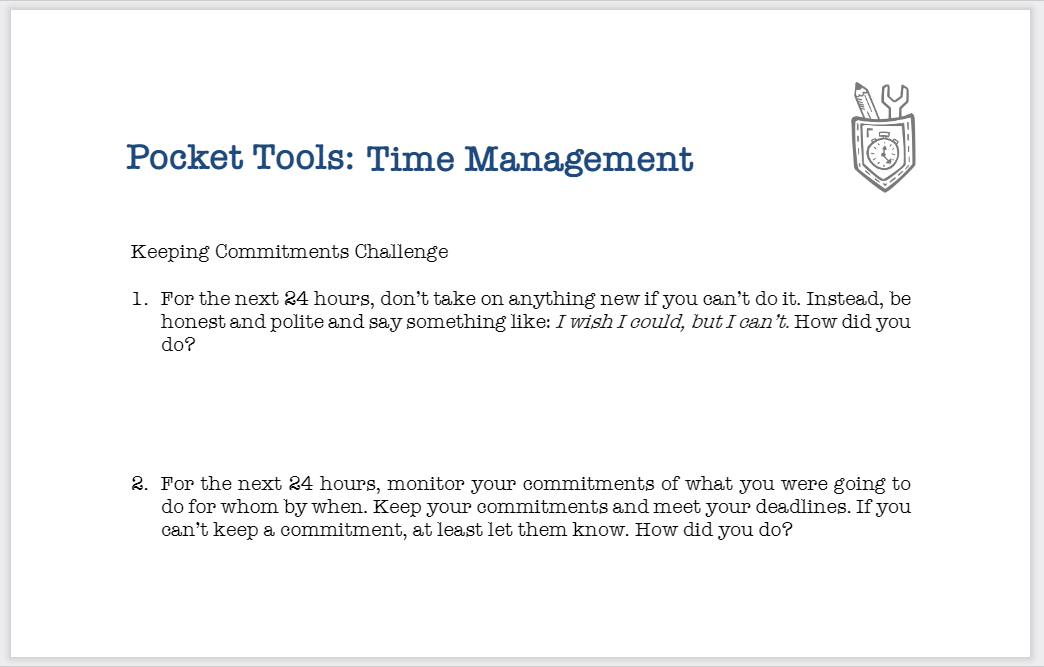You may think you’ve done a great job of describing your expectations when delegating a task.
The real question is…what did the other person hear? The difference between what you said and what they heard may be the difference in how well the project goes. Successful delegation is like passing the baton in a race: make sure the recipient has it before you let go.
Spend a few minutes to ensure they have it by asking some questions and listening:
- What’s their understanding of what they need to do?
- How are they going to approach the task? What will they do first?
- What issues or challenges do they foresee?
- What questions do they have?
This is your opportunity to check to see how clear you’ve been as well as get a sneak preview of how successful they’ll be executing the task. It’s better to check if they’re pointed in the right direction than to hope they are.
Our biggest challenge in transferring knowledge is not assuming the other person knows what we might take for granted. It’s safer to overcommunicate than to undercommunicate. Think back to when you were in their position and how much you didn’t know—and were often afraid to admit that.
The blind spot we often have teaching others the fundamentals of a skill was coined the Curse of Knowledge in Made to Stick by Dan and Chip Heath. What often gets in the way of educating others is the curse that we take for granted the knowledge that others don’t. We are unconscious about our competence. We just do it and are not sure how to break down the steps to someone who doesn’t know.
When we ask questions and observe after delegating, we are attempting to adapt the beginner’s mind—to get inside of the head of the beginner. If we can do that, we can fill in the gaps in critical information that make the difference between falling short of expectations and meeting them.




Recent Comments